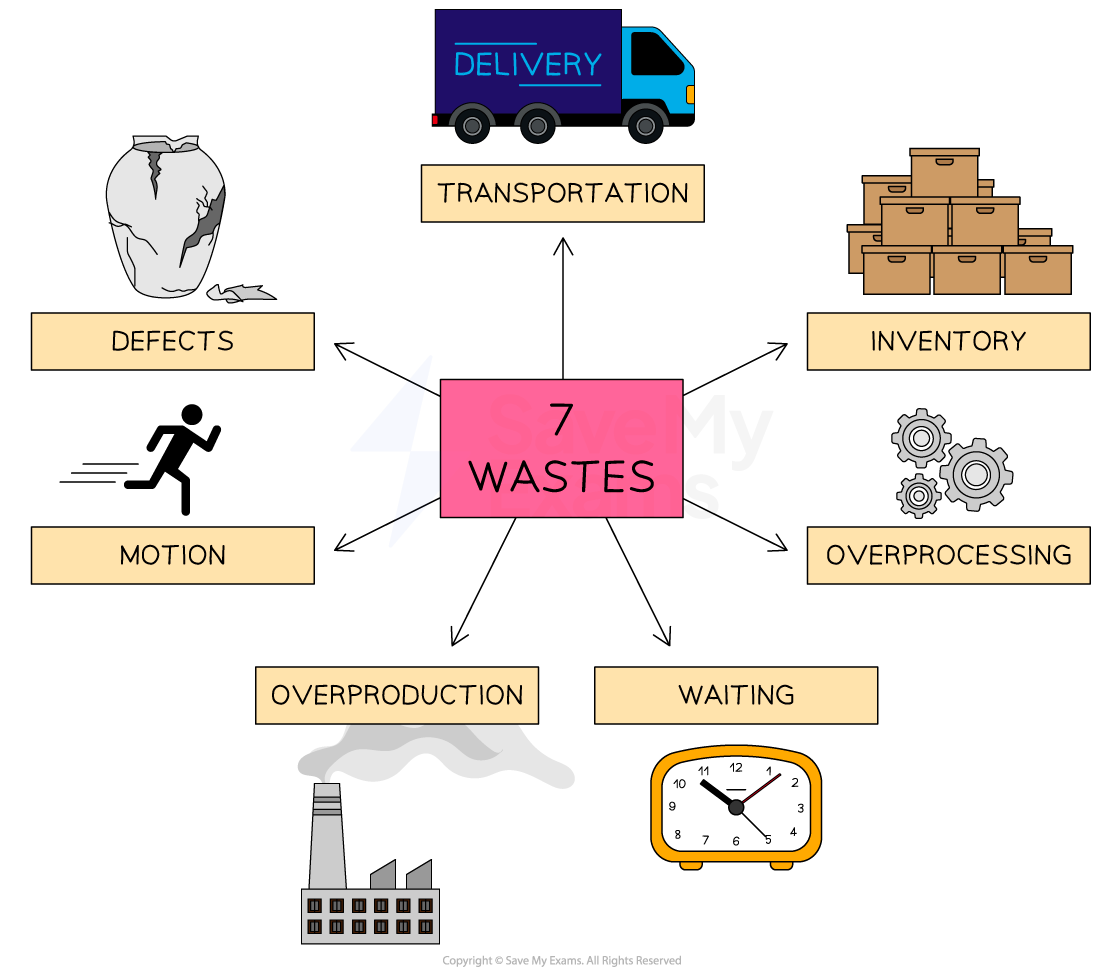Introduction to Lean Production
- Lean production involves the minimisation of the resources used in production
- Less time is required as the production process is organised in the most efficient way
- Fewer materials are used as there is a focus on waste reduction
- Less labour is used as lean production is typically capital intensive
- The space required for production is reduced as a result of just in time stock management
- A small number of trusted suppliers work closely with the business
- The use of lean production is likely to lead to a competitive advantage
- Lower unit costs are achieved due to minimal wastage so prices may be lower than those offered by competitors
- High quality output is likely as a result of supplier reliability and carefully managed production processes
- The result should be increased profit margins
- Lean production uses strategies such as Just in Time stock control and Kaizen



